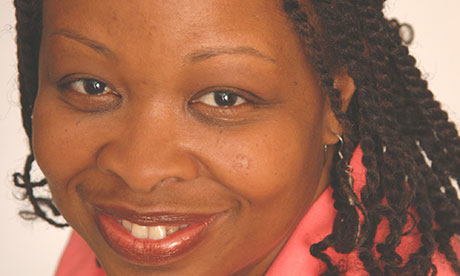
Why did you choose to write about this topic?
Female genital mutilation (FGM) had been on my mind for a long time, even before I wrote No Laughter Here. I attended a seminar devoted to the topic in the 90s hosted by Alice Walker, author of Possessing The Secret Of Joy. There were many women speakers but no girls to speak of their experience. Perhaps the women spoke from the girl within them. If they had, I missed it. I knew I wanted to write about this topic from a girl's point of view and to not treat it as an adult subject. I thought I would write about a girl whose best friend had undergone FGM and that nothing would be the same for them thereafter. I planned to place friendship between the characters at the centre of the novel to make the story relatable to readers and to hopefully generate interest about children beyond my readers' safe borders.
When researching the topic, did you talk to women with first hand experience of FGM, and if so were they reluctant to talk about it?
I didn't talk to women or girls who had experienced FGM, although I did speak to a gynecological nurse who was candid about what she had seen when circumcised women came to the hospital she worked at. She didn't give me permission to thank her in my acknowledgements for fear of losing her job. I had already read novels on the subject (Woman at Point Zero, Desert Flower and Possessing the Secret of Joy) but my real research began at my neighbourhood library, reading many personal accounts. After No Laughter Here was published I saw an indie film called The Day I'll Never Forget about an older sister's attempt to save her sister from FGM. It was important to associate a child's face and voice with this issue.
Letters from girls and women came to me after the book was published. Some letters were from women seeking asylum from being returned to their countries and then being forced to undergo FGM by their family. Some were letters from girls whose families escaped the practice by fleeing to Canada, England, Europe and the US. One young teen read the book and realised that she had undergone FGM as a baby. She invited me to her school and I spoke to her class who had read the book. She was very brave to share with her peers. They applauded her fiercely.
In the book, why did you make the teacher sympathetic to the practice of FGM?
I made the teacher somewhat sympathetic for several reasons. First, it's easy for outsiders like myself to criticise a practice that seems cruel, but harder to understand the people who deem the practice necessary. I generally take the harder route in my stories. If we can understand what's at the heart of people - their beliefs, values, fears, and humour - we grow closer toward having a real discussion with them. From there, a sharing of ideas is possible. (That's my brand of optimism at work.) Anyway, I made Mrs Saunders sympathetic because there was no one to speak for the people who practice the ritual and readers should have the benefit of knowing there is another side to an issue. But also, this fictional character has been out in the world and has learned to respect people - even the ones she doesn't agree with. I don't expect Akilah to do the same. So, Mrs. Saunders is there to offer perspective and to challenge readers to consider customs that they might not agree with.
How did you feel about having conversations with family or friends on the topic?
I've never pushed the topic onto family members and friends. If they asked me, "So Rita, what have you written about lately," I'd tell them. When she was alive, my 94 year-old grandmother was very open to talking about it, as was my father. My then 20-something year-old niece was not open to the discussion. As much as I want everyone to read this story, I recognise it's not a story or subject for everyone. I pray the book finds her special reader.
Do you have any plans to work on any more projects relating to FGM?
I wanted to write a follow-up story immediately after No Laughter Here called, The Women Have Spoken, but the challenges of getting No Laughter Here in libraries and in bookstores was daunting. I don't have immediate plans to write on this topic as fiction, but I am open to writing about it as non-fiction and I'm pleased to support anyone who does write about this topic, especially for young readers.
Louise Wylie was a finalist in the Amnesty Young Human Rights Reporter competition. The competition is run in conjunction with The Guardian and Amnesty International UK, to find out more about this year's awards visit visit www.amnesty.org.uk/youthawards

